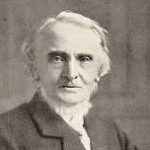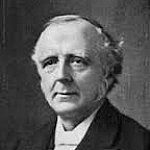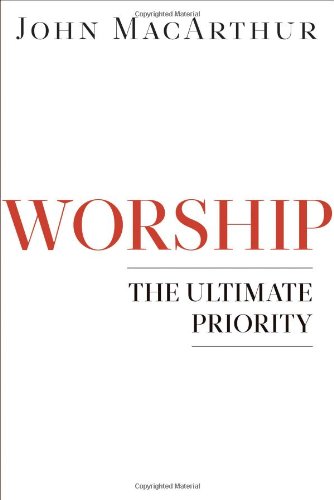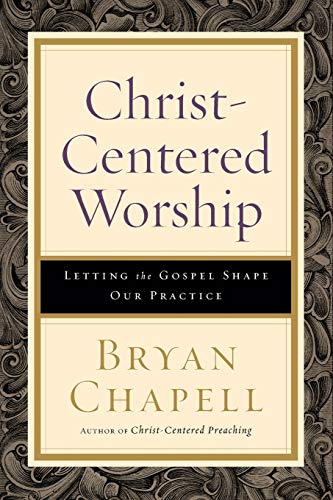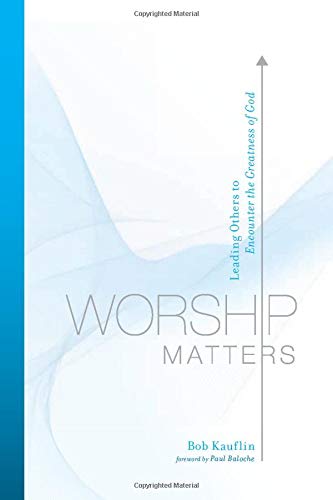Quotes about Idolatry
Every one of us is, even from his mother’s womb, a master craftsman of idols.
The Lord very frequently addresses us in the character of a husband… As He performs all the offices of a true and faithful husband, so He stipulates for love and conjugal chastity from us; that is, that we do not prostitute our souls to Satan… Therefore, as the purer and chaster the husband is, the more grievously is he offended when he sees his wife inclining to a rival; so the Lord, who has betrothed us to Himself in truth, declares that He burns with the hottest jealousy whenever, neglecting the purity of His holy marriage, we defile ourselves with abominable lusts, and especially when the worship of His Deity, which ought to have been most carefully kept unimpaired, is transferred to another, or adulterated with some superstition; since, in this way, we not only violate our plighted troth, but defile the nuptial couch, by giving access to adulterers.
I fear that the cross, without ever being disowned, is constantly in danger of being dismissed from the central place it must enjoy, by relatively peripheral insights that take on far too much weight. Whenever the periphery is in danger of displacing the center, we are not far removed from idolatry.
The Cross and Christian Ministry: An Exposition of Passages from 1 Corinthians, Baker, 1993, p. 38.
There are two ways to commit idolatry. You can worship something other than the one true God, that’s way one. There is another way as well. You can worship the one true God by some other means than those that He has appointed.
“No Idols”, First Presbyterian Church, Jackson, MS. As downloaded in Fall of 2010, URL: http://www.fpcjackson.org/resources/sermons/exodus/Exodus%20Vol%203%20&%204/23aExo.htm. Used by Permission.
What may be good and beautiful under the authority of God, becomes a damning god if you love it more than Christ.
The Change of Mind, Christian Communicators Worldwide, www.CCWtoday.org. Used by Permission.
When the loss of any temporal enjoyment casts us into excessive despondency and dejection it is evident that what we have lost, was the object of our inordinate love. The most innocent attachments cease to be innocent, when they press too strongly upon us! To cleave to any created object, and to look for happiness from it – is to make an idol of it – and set it up in God’s place. Should this object be a friend, a brother, a wife, or a child, the idolatry is still odious in the eyes of that God, to whom we owe our chief affection. Our warmest passions, our most fervent love, desires, hopes, and confidences should always have God for their object. It is His desire that our happiness should not center in any of the good things of this life.
A man sits in front of a bad television program and doesn’t know that he is bored; he joins the rat race of commerce, where personal worth is measured in terms of market values, and is not aware of his anxiety. Ulcers speak louder than words. Theologians and philosophers have been saying for a century that God is dead, but what we confront now is the possibility that "man is dead," transformed into a thing, a producer, a consumer, an idolater of other things.
When we sin against Him, breaking His law, worshipping idols, searching for satisfaction in created things rather than in Him, we reject His kingship over us and thereby make ourselves liable to His good and righteous judgment.
The Gospel – God’s Self-Substitution for Sinners by Greg Gilbert, taken from Don’t Call it a Comeback, edited by Kevin DeYoung, copyright 2011, Crossway Books, a division of Good News Publishers, Wheaton Illinois 60187, www.crosswaybooks.org, page 74. Get this book!
Idolatry may not involve explicit denials of God’s existence or character. It may well come in the form of an over-attachment to something that is in itself perfectly good… An idol can be a physical object, a property, a person, an activity, a role, an institution, a hope, an image, an idea, a pleasure, a hero, anything that can substitute for God.
To cast God away for the temporary trinkets of this life, as if He were a secondhand piece of jewelry, is deeply dishonoring to the sovereign character of the Creator, who Himself alone can satisfy the deepest longings of our hearts (Psm. 16). At the center of our sin is our nonchalant neglect of God, as if we were the creators and rulers of our own lives, doing with them as we please. In short, “all have sinned and fall short of the glory of God” (Rom. 3:23). Our failure to honor God is an intolerable situation for the Creator and Savior of mankind, who will not share the rightful glory of His sovereignty with anyone or anything else (Ex. 9:16).
"Idolatry" is the practice of seeking the source and provision of what we need either physically or emotionally in someone or something other than the one true God. It is the tragically pathetic attempt to squeeze life out of lifeless forms that cannot help us meet our real needs.
If we make an idol of any creature, wealth, or pleasure, or honour – if we place our happiness in it, and promise ourselves the comfort and satisfaction in it which are to be had in God only – if we make it our joy and love, our hope and confidence, we shall find it a cistern, which we take a great deal of pains to hew out and fill, and at the best it will hold but a little water, and that dead and flat, and soon corrupting and becoming nauseous (Jer. 2:23).
Idolatry consists not only in the worship of false gods, but also in the worship of the true God by images.
The true god of your heart is what your thoughts effortlessly go to when there is nothing else demanding your attention.
Like Adam and Eve, most of the time the real object of our worship isn’t some creature out there, it’s this creature right here. In the end, my idolatry centers on me. What’s more, if I can persuade you or bully you or manipulate you, my idolatry will include you worshiping me as well.
The Story of the Fall by Michael Lawrence taken from Biblical Theology by Michael Lawrence, copyright 2010, Crossway Books, a division of Good News Publishers, Wheaton Illinois 60187, www.crosswaybooks.org. Page 135.
Their god is something which they created themselves, a being who is always prepared to oblige and excuse them. They do not worship him with awe and respect, indeed they do not worship him at all. They reveal that their so-called god is no god at all in their talk. For they are forever saying that “they simply cannot believe that God will punish the unrepentant sinner to all eternity, and this and that.” They cannot believe that God will do so, therefore, they draw the conclusion that God does not and will not. In other words, God does what they believe he ought to do or not do. What a false and blasphemous conception of God! How utterly untrue and unworthy! Such is the new paganism of today.
To whatever we look for any good thing and for refuge in every need, that is what is meant by “god.” To have a god is nothing else than to trust and believe in him from the heart… To whatever you give your heart and entrust your being, that, I say, is really your god.
Idolatry is worshiping something other than the true God in the true way.
Idolatry is having any false god – any object, idea, philosophy, habit, occupation, sport, or whatever that has one’s primary concern and loyalty or that to any degree decreases one’s trust in and loyalty to the Lord.
Our society has made idols out of power, strength, beauty, wealth, intelligence, and athletic ability. These are the things that people value. In our society a successful person is someone who has several of these things. An unsuccessful man is someone who has none of these assets. According to the Bible, this way of measuring worth and success is wrong. These are not the things that God values most. These are not the most important things in life.
Offer men the smaller gifts, and they will run over one another in their scramble for them; but offer them the highest, and they will scarcely hold out a languid hand to take them.
An idol is anything, any attitude, any belief, or any god that so captures a person’s attention and allegiance that God does not have pre-eminence.
There is the cistern of Pleasure, engraved with fruits and flowers, wrought at the cost of health and peace; the cistern of Wealth, gilded and inlaid with costly gems; the cistern of Human love, which, however fair and beautiful, can never satisfy the soul that rests in it alone – all these, erected at infinite cost of time and strength, are treacherous and disappointing.
The attractiveness of idols is because they are visual, portable, tangible, manageable and servable.
You don’t have to go to heathen lands today to find false gods. America is full of them. Whatever you love more than God is your idol.
When I view a particular possibility as threatening, it imperils some value important to me. That is what I mean by threat. But suppose this threat is directed not to some modest finite value I love but to the very center of my value system, that focal value by which all my other values are viewed as valuable. Suppose my god is sex or my own physical health or the Democratic Party. If I experience one of these as under genuine threat, then I feel myself shake to the depths. In this way, idolatry intensifies anxiety.
Two Worlds: Notes on the Death of Modernity in America & Russia, IVP Press, 1992, p. 97.
What each one honors before all else, what before all things he admires and loves, this for him is God.
Idols never satisfy, but always demand increasingly more, constantly adding to the burdens of our lives and in the end giving nothing of lasting value (Richard and Sharon Phillips).
We are all worshipers, and whatever we worship we rely upon and serve. For many men, success is the god they worship and serve. For others, it is fame or pleasure. Women often worship beauty or falling in love. Whatever it is, we worship it because we think it will make our lives work. It will secure us against a hostile world, it will give us satisfaction – in short, it will be our Savior. Thus, when an idolater says, “I love you, “what he means is, “You are a means for getting what I want. You are serving my needs and securing my hopes (Richard and Sharon Phillips).
My favorite explanation of idolatry is John Calvin’s: “The evil in our desire typically does not lie in what we want but that we want it too much” (Wayne Grudem and Dennis Rainey).
You will never be satisfied until you realize that your every desire for more in this life is, in reality, a desire for more of God (Tom Patton).
Sadly, the unbeliever attempts the whole of his life to quench the unquenchable with something other than God. So, he pursues fame, money, power, wealth, fitness, work, wisdom, education, love, or any other creative thing that can perhaps quiet the desperate cry of his empty soul. But none of the things he finds – whether politics or popularity or creativity or anything else this world offers – can ever answer the call of his heart. He can pursue happiness, but he will never find it. As soon as he acquires one desire it turns into dust – as does the next, and the next day after that, until life finally ends in disappointment (Tom Patton).
We were made in His image, but we must not think of Him existing in ours.
Taken from Knowing God by JI Packer. Copyright(c) 1973. Used by permission of InterVarsity Press, PO Box 1400, Downers Grove, IL 60515, p.47. Get this book!
There is nothing so abominable in the eyes of God and of men as idolatry, whereby men render to the creature that honor which is due only to the Creator
The “god” of this twentieth century no more resembles the Supreme Sovereign of Holy Writ than does the dim flickering of a candle the glory of the midday sun. The “god” who is now talked about in the average pulpit, spoken of in the ordinary Sunday School, mentioned in much of the religious literature of the day, and preached in most of the so-called Bible Conferences is the figment of human imagination, an invention of maudlin sentimentality. The heathen outside of the pale of Christendom form “gods” out of wood and stone, while the millions of heathen inside Christendom manufacture a “god” out of their own carnal mind. In reality, they are but atheists, for there is no other possible alternative between an absolutely supreme God, and no God at all. A “god” whose will is resisted, whose designs are frustrated, whose purpose is checkmated, possesses no title to Deity, and so far from being a fit object of worship, merits nought but contempt.
The Attributes of God, Baker Book House, p. 28- 29.
Get this book!
If created things are seen and handled as gifts of God and as mirrors of His glory, they need not be occasions of idolatry – if our delight in them is always also a delight in their Maker.
Desiring God, 1996, p. 143, Used by Permission, www.desiringGod.org. Get this book!
Sex is good, but sex is not God. It will not ultimately fulfill. Like anything else that becomes an idol, it will always take more than it gives while diverting the human heart away from the only One who is able to give supreme joy.
Taken from Counter Culture, Copyright © 2015 by David Platt. Used by permission. Website: Radical.net. Page 164.
We are meant to long supremely for the Lord Himself, for the Giver, not His gifts. The absence of blessings – rejection, vanity, reviling, illness, poverty – often is the crucible in which we learn to love God for who He is. In our idolatry we make gifts out to be supreme goods, and make the Giver into the errand boy of our desires.
Seeing With New Eyes, P&R Publishers, 2003, p. 134-135. Get this book!
To identify your own idols, ask questions like these: What things take the place of God in my life? Where do I find my significance and my confidence? What things make me really angry? Anger usually erupts when an idol gets knocked off the shelf.
Anytime we long for something apart from God, fear something more than God, or trust in something other than God to make us happy, fulfilled, or secure, we worship a false god.
Reprinted from The Peacemaker: A Biblical Guide to Resolving Personal Conflict, Ken Sande, Baker Books, 3d ed., 2004, p. 109. Peacemaker® Ministries. www.PeaceMaker.net, Used by Permission. Get this book!
Most of us think of an idol as a statue of wood, stone, or metal worshiped by pagan people. But the concept of idolatry is much broader and far more personal than that. An idol is anything apart from God that we depend on to be happy, fulfilled, or secure. In biblical terms, it is something other than God that we set our heart on that motivates us, that masters and rules us, or that we trust, fear, or serve. In short, it is something we love and pursue more than God.
Reprinted from The Peacemaker: A Biblical Guide to Resolving Personal Conflict, Ken Sande, Baker Books, 3d ed., 2004, p. 104. Peacemaker® Ministries. www.Peacemaker.net. Used by Permission. Get this book!
It is important to emphasize the fact that idols can arise from good desires as well as wicked desires. It is often not what we want that is the problem, but that we want it too much.
Reprinted from The Peacemaker: A Biblical Guide to Resolving Personal Conflict, Ken Sande, Baker Books, 3d ed., 2004, p. 104. Peacemaker® Ministries. www.Peacemaker.net. Used by Permission. Get this book!
What am I willing to sin to get, or sin if I don’t get? For me, to really live is what? What have I habitually sought and set my heart on in this life?… The human heart always fixates on some object of worship because we were created worship (Deut. 11:16; John 4:23; Rom. 1:18-32; Col. 1:16).
Counseling the Hard Cases, Edited by Stuart Scott and Health Lambert, B&H Publishing, 2012, p. 215, Used by Permission.
In Colossians 1:18 we are commanded to give Jesus Christ “first place in everything.” First place “among” everything is bad theology. In other words, Jesus Christ is above everything else that I love. Women, it’s great to love your husband more than other men, but Jesus must not be embraced from that perspective. Right theology is first place “in” everything. Jesus is above all things and is honored in the heart of everything we do. In other words, we do all things through Him and for Him (ride a bike, talk to a friend, serve at work, watch a movie, listen to music, play golf, sweep the floor, etc.). With Christ, there is absolutely no division between the sacred and the secular. If there is, we fall into the category of idolatry.
As C.S. Lewis once said, “Whatever is not eternal is eternally out of date.” It is simple logic. Why not invest myself it that which will last forever and matter most in this life? Do I have the faith to believe that? Do I have a deep satisfaction for all that God promised me in Christ Jesus, beginning now? If so, I will value that which is really valuable. And in order for that to happen, I need the Lord to continually help me to keep my gaze in the right place because the things of this world oftentimes seem so right and attractive, don’t they? It’s so easy to worship the creation over the Creator, isn’t it? But God has designed it where ultimate fulfillment is only to be found in the eternal realm. So if we choose not to go that route we are programmed for failure.
I believe the greatest way to overcome addictions is with a greater desire. Addictions are a problem of passion. The problem is not with the passion itself. The problem is with the object our passion calls us to pursue. So why does our passion cause us to run to an idol? Because we believe that idol is most attractive. The power to change is available in Christ, yet we don’t go there because the pleasure of the idol seems more desirous that Christ. However, if we can see Jesus Christ as more satisfying – which He is, we will never pursue another idol again in our lives.
It’s been said, the human heart is an idol factory. And there are so many idols to choose from here in America. There’s so much to worship with your affections, trust, time, passion, money and allegiance. But these idols, inspired by demons (1 Cor. 10:20; Rev. 9:20), do not deliver what they promise and what we seek in them. They betray us and harden our hearts toward God. They inspire us to turn to the very behavior that God hates.
If there is anything that thrills you, excites you, captivates you, stuns you more than God, you are an idolater.
Sermon, The Faithful Witnesses of Christ – Part 2, Revelation 11:1-19, January 3, 2015.
Folks, I’m not aware of any pictures of heaven that we have from Revelation where anyone other than the Triune God receives worship. Is there evidence your heart is being prepared for that eternal existence?
To most people, the gifts we enjoy are more important than the Giver of the gifts. Some might be grateful for their many blessings. But how many are expressing that gratitude to God? How many are metaphorically falling at His feet and glorifying Him with a genuine and enthusiastic heart? Many are thankful, but how many prioritize their thankfulness to God? How often do blessings actually lead people away from God because they want something from God and do not see God in the something?
Augustine rightly said, “Fear is the response of the human heart when its one thing is threatened.” God has blessed all of our lives with many good things. We are to enjoy them and acknowledge God in gratitude, but we dare not make these good things our “one thing”, for in doing so, they become idols in our hearts. Like Augustine said, when we foolishly make these good things our one thing, fear will result when they are threatened. As a matter of fact, fear, worry, and anxiety are a good indication that we have created idols and feel in danger of losing them. Therefore, Christ’s goal is to pull our heart away from these false gods and place our heart on the true God. Do you remember how Jesus praised Mary over Martha? Why? Because she chose God as her one thing. “But the Lord answered and said to her, ‘Martha, Martha, you are worried and bothered about so many things [and they were good things!]; but only one thing is necessary, for Mary has chosen the good part, which shall not be taken away from her‘” (Lk. 10:41-42). So when God is our one thing, we never need to fear because our one thing is never threatened nor will He ever be removed from our presence.
What is the purpose of life? Very simple, you will never be satisfied until you enter a relationship with your Creator. Your heart is restless in its pursuit of a god – some “noble” gods (good causes, loved ones) and some bad gods (selfishness, money). But the true God has wired all humanity to find true peace, happiness, hope and identity in Him alone. It’s His built-in safeguard for us to avoid idolatry and second-rate pleasures.
I had a profound, deep, emotional, religious experience, fueled by a man made, false presentation of Jesus [while watching a movie]. Much like the children of Israel had a profound, deep, emotional, religious experience, fueled by a man made, false presentation of God, in the form of a golden calf. The problem with the movie isn’t, in my judgment, that it is a technical violation on the edges of a law God made, that seeing it might make Him mad because He’s so persnickety. The problem is that, for me anyway, I was lead right into the vicious heart of idolatry, which was cleverly disguised as a positive Christian experience.
O ye sons of men, think not that God is blind. He can perceive the idols in your hearts; He understands what be the secret things that your souls lust after; He searches your heart, He tries your reins; beware lest He find you sacrificing to strange gods, for His anger will smoke against you, and His jealousy will be stirred. O ye that worship not God, the God of Israel, who give Him not dominion over your whole soul, and live not to His honor, repent ye of your idolatry, seek mercy through the blood of Jesus, and provoke not the Lord to jealousy any more.
False gods patiently endure the existence of other false gods. Dagon can stand with Bel, and Bel with Ashtaroth; how should stone, and wood, and silver, be moved to indignation; but because God is the only living and true God, Dagon must fall before His ark; Bel must be broken, and Ashtaroth must be consumed with fire.
For God to fail or refuse to value Himself preeminently would implicate Him in the sin of idolatry. Idolatry is honoring anyone or anything as god, instead of God. If God were ever to act in such a way that He did not seek His own glory, He would be saying that something more valuable than Himself exists, and that is a lie. Worse still, it is idolatrous.
Copied from: Pleasures Evermore: The Life-Changing Power of Knowing God by Sam Storms, © 2000, p. 98. Used by permission of NavPress – www.navpress.org. All rights reserved. Get this book!
Idols are dead; God is living. Idols are false; God is true. Idols are many; God is one. Idols are visible and tangible; God is visible and intangible… Idols are creatures, the work of human hands; God is the Creator of the universe and of all humankind.
The Message of 1 and 2 Thessalonians, 1991, InterVarsity Christian Fellowship. Used with permission of InterVarsity Press UK, p. 39.
Some people are eaten up with a selfish ambition for money, power or fame. Others are obsessed with their work, or with sport or television, or are infatuated with a person, or addicted to food, alcohol, hard drugs or sex. Both immorality and greed are…pronounced by Paul to be forms of idolatry (Eph. 5:5), because they demand an allegiance which is due to God alone. So every idolater is a prisoner, held in humiliating bondage.
The Message of 1 and 2 Thessalonians, 1991, InterVarsity Christian Fellowship. Used with permission of InterVarsity Press UK, p. 39.
The essence of idolatry is the entertainment of thoughts about God that are unworthy of Him.
A desire for a good thing becomes a desire for a bad thing when that desire becomes a ruling thing.
We judge God’s love and faithfulness by how many of our desires have been met. When our desires do not materialize, our words are telling. Angry, accusing words reveal the idols in our hearts – so do selfish prayers couched in pious and deferential language. Too often, it is not God’s will that we want, but our will made possible by God.
We’ve created a God that we must help out, who we must explain, who winks at sin, who excuses our lack of love for people and God’s Word.
Either we will love and serve God, or we will love and serve our idols. Idols exist in our lives because we love them and invite them in. But once idols find a home, they are unruly and resist leaving. In fact, they change from being the servants of our desires to being our masters.
Blame in on the Brain? P&R Publishing, 1998, p. 194. Get this book!
What is the result of…people-idolatry? As in all idolatry, the idol we choose to worship soon owns us. The object we fear overcomes us. Although insignificant in itself, the idol becomes huge and rules us. It tells us how to think, what to feel, and how to act. It tells us what to wear, it tells us to laugh at the dirty joke, and it tells us to be frightened to death that we might have to get up in front of a group and say something. The whole strategy backfires. We never expect that using people to meet our desires leaves us enslaved to them.
When People are Big and God is Small, P&R Publishing, 1997, p. 46. Used by Permission. Get this book!
The purpose of all idolatry is to manipulate the idol for our own benefit. This means that we don’t want to be ruled by idols. Instead, we want to use them… Idolaters want nothing above themselves, including their idols. Their fabricated gods are intended to be mere puppet kings, means to an end… Idols, however, do not cooperate. Rather than mastering our idols, we become enslaved by them and begin to look like them. As idols are deaf, dumb, blind, utterly senseless, and irrational, so “those who make them will be like them, and so will all who trust in them” (Psalm 115:8)… How can these lifeless idols exert so much power? They dominate because of a powerful but quiet presence that hides behind every idol, Satan himself.
Addictions – A Banquet in the Grave, P&R Publishing, 2001, p. 49-50, Used by Permission. Get this book!
Idolatry…includes anything on which we set our affections and indulge as an excessive and sinful attachment… Idolatry includes anything we worship: the lust for pleasure, respect, love, power, control, or freedom from pain. Furthermore, the problem is not outside of us, located in a liquor store or on the Internet; the problem is within us. Alcohol and drugs are essentially satisfiers of deeper idols. The problem is not with the idolatrous substance; it is the false worship of the heart.
Addictions – A Banquet in the Grave, P&R Publishing, 2001, p. 49, Used by Permission. Get this book!
The true nature of all addictions is that we have chosen to go outside the boundaries of the kingdom of God and look for blessing in the land of idols. In turning to idols, we are saying that we desire something in creation more than we desire the Creator.
Addictions – A Banquet in the Grave, P&R Publishing, 2001, p. 47, Used by Permission. Get this book!
Using the perspective of idolatry, addicts are blinded by their own desire. They refuse to see themselves as dependent on God. God’s glory and fame is not their goal. In their self-addiction or selfishness, they worship and bow down before false gods. Addicts have defected from the living God. Instead of worshipping in the temple of the Lord, they perform addictive rituals that give them more perceived power, pleasure, or identity. They see in their addiction a form of magic (Deut. 18:10-14). The promises of the idol, however, are lies. Any identity, power, or peace they bring is false and temporary. There are only two choices: putting your faith in a loving God and thus knowing freedom, or putting your faith in idols (Satan) and being enslaved. Curiously, our selfish pride prefers slavery.
Addictions – A Banquet in the Grave, P&R Publishing, 2001, p. 54-55, Used by Permission. Get this book!
Just as every sin is the fruit of unbelief, at the heart of every sin is an idol. If I believe a lie about God, then I am not worshipping Him; rather, I am belittling Him, casting Him from the throne of my heart. Man was designed for worship, so if I am not worshipping God, I am worshipping something or someone else.
Counseling the Hard Cases, Edited by Stuart Scott and Health Lambert, B&H Publishing, 2012, p. 130, Used by Permission.
Idols are powerful, but two realities cause our hearts to become dissatisfied with idols. The first is that we are created in the image of God and created for God; nothing else will give us eternal purpose or everlasting joy. When we choose to set up a dead, powerless idol and worship at its feet, then we are attended to by a dead, powerless idol that pleases temporarily and superficially. Money disappears. Fame fades away. Children grow up and leave. Our friends fail us. Control is elusive. God alone – in all of His beauty and grace – can promise us joy forever. The second reality that causes our hearts to grow dissatisfied with idols is the grace of God. God is too good to allow His children to worship something or someone that will not satisfy. He is so good that He either wrenches our idols from our hands or makes us miserable as long as we clench and grasp.
Counseling the Hard Cases, Edited by Stuart Scott and Health Lambert, B&H Publishing, 2012, p. 130, Used by Permission.

















